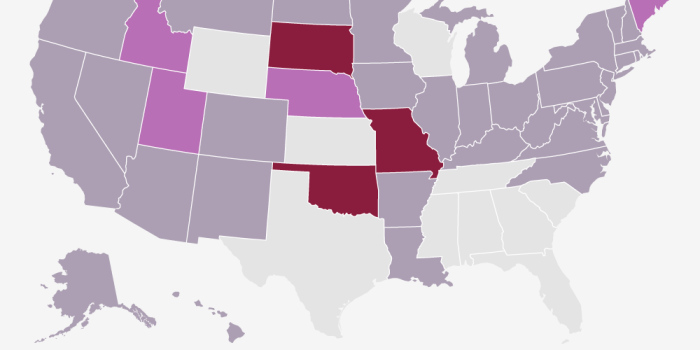States that were once reluctant to expand Medicaid now have their state budgets tied to the fate of the program by constitutional amendments.
If congressional Republicans go through with some of the deep Medicaid cuts they are considering, three states would be left in an especially tight bind.
South Dakota, Missouri and Oklahoma have state constitutions requiring that they participate in Medicaid expansion, the part of Obamacare that expanded the health program for the poor to millions of adults.
If Republicans choose to make the projected budget reductions by cutting into Medicaid expansion, the other 37 states (and D.C.) that participate in the expansion could stop covering working-class adults. Nine states have laws explicitly requiring them to stop Medicaid expansion or make significant changes if the federal share of spending drops.
But South Dakota, Missouri and Oklahoma can’t do that. They either need to amend their constitutions, a lengthy process that can take years, or figure out how to fill the budget hole, most likely by cutting other services or raising taxes.
The constitutional amendments were put on state ballots by progressive activists, who wanted to entrench the Medicaid program in places that had been hostile to that part of the Affordable Care Act. The idea was twofold: to get health coverage to more people, and to tether more states and their Republican lawmakers to Medicaid.














